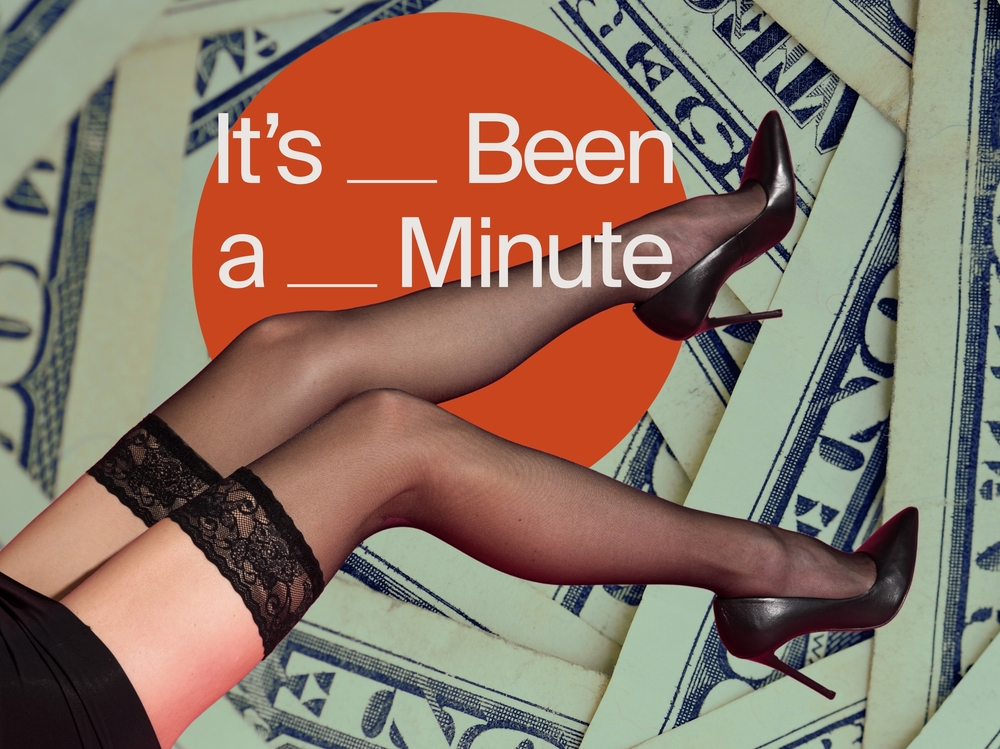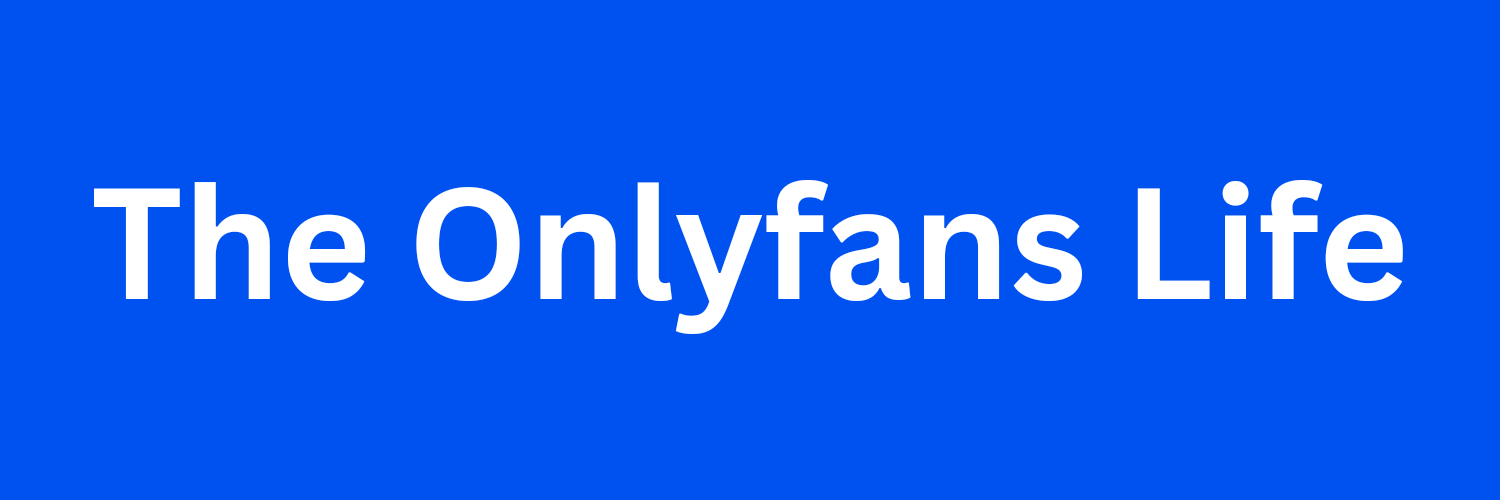
Concert tickets are more expensive than ever, and according to Live Nation, 2023 was the biggest year ever for concert turnout and ticket sales. So why are indie artists turning to OnlyFans to pay the bills?
This is PART ONE of our new series, Money Troubles.
And for the next few weeks, we’re looking into the ways everyday people are trying to make ends meet… and what it says about how our culture views labor, basic needs, and even our favorite pastimes.
In this episode, Brittany sits down with NPR culture reporter Isabella Gomez Sarmiento to get into the economic factors driving musicians to digital sex work and what that says about the music industry’s dwindling middle class.
Audio transcript
BRITTANY LUSE, HOST:
Hello, hello. I’m Brittany Luse, and you’re listening to IT’S BEEN A MINUTE from NPR, a show about what’s going on in culture and why it doesn’t happen by accident.
(SOUNDBITE OF MUSIC)
LUSE: Do you all remember this line from Megan Thee Stallion’s “Savage” remix?
(SOUNDBITE OF SONG, “SAVAGE REMIX (FEAT. BEYONCE)”)
BEYONCE: (Singing) Hips tick-tock when I dance. On that demon time, she might start an OnlyFans.
LUSE: At the time, this was just a cheeky line from Beyonce about the meteoric rise of OnlyFans during lockdown.
(SOUNDBITE OF MUSIC)
LUSE: For those of you who are out of the loop, OnlyFans is a subscription or pay-per-view-based social media platform. It’s mostly known for sex work, as many adult stars and performers have moved to the app to create and upload content on their own terms, but it’s also become an avenue for music artists to share exclusive content.
ISABELLA GOMEZ SARMIENTO, BYLINE: Over the years, there’s been lots of people – Cardi B, Rico Nasty, Lily Allen – who have joined OnlyFans, and not all of them have shared nude content. The British artist Shygirl was the first artist to premiere a music video on OnlyFans. So there is some sort of, like, blurring of lines of what musicians are on there for.
LUSE: That is NPR culture reporter Isabella Gomez Sarmiento. She recently wrote a piece about musicians on OnlyFans, and she found that while big stars often use it to give a behind-the-scenes look into their creative process, smaller independent artists have turned to sex work on OnlyFans to pay the bills.
GOMEZ SARMIENTO: British singer-songwriter Kate Nash, who’s been making music for almost two decades, she joined in November, and it was, like, so much judgment being thrown around about her choosing to do this. And it kind of seemed like the big question that was being evaded was, like, well, why is an artist like her needing to supplement her income in the first place?
LUSE: And while artists doing sex work is not a new thing, what is new, at least to me, is why they’re doing it.
(SOUNDBITE OF MUSIC)
GOMEZ SARMIENTO: Because of streaming and because of what some people are calling the cost-of-touring crisis, we’re seeing more and more musicians turn to OnlyFans and turn to digital sex work as a way to supplement the income that they feel they’re not adequately getting from recording music and from touring.
LUSE: I don’t know about you, but I was always under the impression that artists make the bulk of their money on tour. But that income model has changed drastically over the years.
GOMEZ SARMIENTO: Recorded music has really declined in value because artists make so little from how much we actually listen to their music. The revenue from touring is just not going to cut it. And at the same time, concert tickets are becoming more and more expensive. It raises a lot of questions about where the money is actually going if it’s not making its way back to the artists.
LUSE: This is Money Troubles.
(SOUNDBITE OF MUSIC)
LUSE: And for the next few weeks, we’re looking into the ways everyday people are trying to make ends meet and what that says about how our culture views labor, basic needs or even our favorite pastimes. Today on the show, Isabella joins me to get into why artists are opting out of traditional platforms and what it says about our growing divide between the haves and have-nots.
(SOUNDBITE OF MUSIC)
LUSE: I want to talk more about what’s going on with touring and why that seems like it has become less and less of a solid economic opportunity for artists, especially independent artists. You know, in your article, Stephen Parker, executive director of the National Independent Venue Association, names Live Nation as the, quote, “biggest threat to live touring in the United States” because of their monopoly on the live music market. Can you give an idea of the allegations that artists or legislators have made against Live Nation or companies like it?
GOMEZ SARMIENTO: Yeah. So, I mean, you know, the Department of Justice and 30 states filed an antitrust lawsuit against Ticketmaster and its parent company Live Nation, basically saying that because they have their hands in so many different aspects of live entertainment – you know, they own venues, they are involved in artist management, they’re involved in promotion, they’re involved in ticketing – that the fact that they have so much control over the industry might be enabling them to raise ticket prices in a way that’s concerning for both fans and for artists, and also, obviously, for everyone that works to put on a live show. I mean, that goes from, like, independent venue owners to the people who work valet parking at a venue, or the bartender, or the crew in the band for a big musician. Like, there are so many people involved in putting on a live show, and the money has to sort of trickle its way down. And it seems like the concern is that when one company holds so much control, that money might not be making its way all the way down.
LUSE: You know, something else that I have seen is other established artists talking about how difficult touring has been. I’m thinking of artists like James Blake and Little Brother. Little Brother has been critical of also venues themselves that are asking for a cut from independent artists when they previously had not. You know, Little Brother is embarking on what they say will be their last tour this year, which is wild to think about – you know, a group with such a solid fan base saying, hey, touring isn’t worth it for us anymore. That’s something that definitely caught my attention.
GOMEZ SARMIENTO: Yeah. And I mean, like you mentioned, like, it’s definitely not just these companies. There’s so many factors. It’s also inflation. Like, the cost of everything that it takes to tour has gotten significantly more expensive, but what the artists are being paid out might be the same as it was seven years ago. It’s just, like, now, like, you know, a hotel and a tour bus and gas and plane tickets – like, all of that stuff is significantly more expensive. And I think the elephant in the room is that the pandemic really impacted the industry. A lot of artists were not able to work or tour for more than a year during the pandemic. And then…
LUSE: Right.
GOMEZ SARMIENTO: …They emerged to this completely unrecognizable atmosphere where it’s like, you know, people were having to social distance or take COVID tests or quarantine while you’re on tour. Like, this entire experience of live music is built on close contact, and that really kind of came apart during the pandemic. And I think artists had to really bear the financial and emotional and physical toll of that in so many instances, especially if anybody got sick and shows were canceled. And there just wasn’t an easy way to recover from that. Like, we’re still – you know, we’re five years out, but I think we’re still significantly dealing with the aftermath of that, as well.
LUSE: Whether that means, you know, they stop touring or they start doing sex work on OnlyFans, there are plenty of artists who have had to make these career-altering decisions to how they approach their careers in the past five years, you know, since the beginning of the COVID-19 pandemic. But, I mean, there’s also, on the other hand, artists like Taylor Swift, who’s selling out, you know, the Eras tour. Would you say the music industry is experiencing, or maybe has always experienced, a little bit of a haves and have-nots dynamic? Like – and what about a music industry middle class? Like, is there anything in between?
GOMEZ SARMIENTO: Yeah, absolutely. I mean, I think that’s the big question because, like you mentioned, like, we’re seeing Taylor Swift and Beyonce and Coldplay and all these really big artists…
LUSE: Set records, sometimes.
GOMEZ SARMIENTO: Yes. They’re breaking box office records. So clearly, the demand is there. Like, fans want to come see live music. Fans want to support artists, and fans are maybe spending more than they ever have to do so. But I think the thing is, it’s becoming less and less feasible for middle-class artists to sort of, you know, strike a middle ground where it’s like, if you’re not a Taylor Swift, if you’re not a Beyonce, if you’re just trying to play small clubs and theaters and, you know, be able to come back home and work on an album, that’s becoming less and less possible. So I think we’re seeing a larger financial discrepancy within the music industry, and it’s becoming harder and harder for middle-class artists, especially those who don’t have a financial safety net.
And again, I think this was one of the big things we saw during COVID. You know, one of the musicians that I interviewed – Lizzie No, who’s now on OnlyFans – she told me during COVID she was going to medical trials as a way to pay her bills because, like some of her friends in the music industry, she didn’t have family money or she didn’t have, like, you know, a cabin upstate where she could just go hang out and write music while she was riding out the pandemic. So I think these inequities in the music industry are becoming more and more stark.
LUSE: One of the things I’ve been thinking about is a lot of these musicians seem to be moving towards OnlyFans or digital sex work because they’re not making as much money, perhaps, as they are used to making, or as much money as they think is fair for their music. But, you know, setting that aside for a second, I mean, OnlyFans is known for being a platform where sex workers can take control of their careers within the adult film industry or within, you know, just, like, the sex industry more broadly. I wonder, how has this celebrity presence on the platform affected the non-celebrity sex workers on OnlyFans?
GOMEZ SARMIENTO: Yeah, it’s super-complicated because, like you said, I think OnlyFans took out sort of the studio middleman for a lot of people who did some kind of sex work or who did pornography, and it made it a lot safer for them. And we’ve seen that when major celebrities join the platform, it can really hurt their bottom line. A couple of years ago, former Disney star and singer Bella Thorne joined OnlyFans. She broke records – right? – because, like, so many people subscribed to her within her first 24 hours. She made all this money. Then there was, like, allegations that she wasn’t sharing the kind of content she had promised. A bunch of people asked for refunds. And even though, you know, OnlyFans issued statements to other outlets saying that it was not related to Bella Thorne, but shortly after all of this happened, they changed policies.
So they, like, capped how much fans could tip creators. They changed payout structures, and sex workers were very, very upset because they felt that someone like Bella Thorne who, you know, is probably not what’s called a survival sex worker – like, she doesn’t depend on sex work to pay her bills, as far as we know, to eat, you know, on a day-to-day basis. She could sort of, like, dabble in and out of OnlyFans, and it has real material impacts for everybody else who really depends on that, you know, to make a living. So I think it’s a sliding scale because, obviously, someone like Kate Nash or Lizzie No, who’s one of the other singers I interviewed, like, I don’t think they’re, you know, like, crashing OnlyFans in the same way that Bella Thorne did. But definitely, when you see a huge celebrity join the platform, it can have very real implications for, quote-unquote, “regular” sex workers who don’t have all these fans and all this support behind them, and that can really hurt them financially at the end of the day.
(SOUNDBITE OF MUSIC)
LUSE: Coming up…
(SOUNDBITE OF MUSIC)
GOMEZ SARMIENTO: The music industry could become a place where only the wealthy and only the ones who have this incredible financial safety net can be creative and can express themselves. We lose a lot if those are the only people who are afforded those opportunities.
LUSE: …What the music industry’s shrinking middle class means for artists and fans alike.
(SOUNDBITE OF MUSIC)
LUSE: I wonder, you know, as we’re talking about this idea of, like, a music industry middle class, like, that it seems is perhaps dwindling, like, who was a middle-class artist, say, in, like, the ’90s or earlier 2000s? How would their business or lifestyle have worked? Like – and how does that compare to now?
GOMEZ SARMIENTO: Yeah. I mean, I think the understanding is that, like, in the 1990s – again, pre-streaming – like, you could record an album, you know, your music – your physical music would sell when people wanted to listen to it. It would get radio play. If your song gets included in a movie or TV show or a commercial, that’s a really big payout for artists. You could tour and make a significant amount of money from that. You would sell merch, make a significant amount of money from that. And I think the idea is that you were comfortable enough. Like, maybe you weren’t, you know, rolling in money or maybe you were still kind of living paycheck-to-paycheck, but it didn’t feel like you were drowning, the way that it seems like some musicians feel today. Like, Lizzie No was telling me she toured for 10 1/2 months and came home and was like, I have all this amazing press written about me, but I need to go back on the tour tomorrow if I want to pay…
LUSE: Gosh.
GOMEZ SARMIENTO: …My rent next month. Which also…
LUSE: Oh, my gosh. Yeah.
GOMEZ SARMIENTO: …If you’re a musician, when are you supposed to have time to, like…
LUSE: To record and write songs.
GOMEZ SARMIENTO: Yeah.
LUSE: Right. Good point.
GOMEZ SARMIENTO: How are you going to pay for studio time? When do you have downtime to, like, be a human being and focus on making more art to go back out on the road, you know?
LUSE: Wow. Wow, wow, wow. A lot of people listening to this conversation might think, OK, so these musicians, some of whom probably have more money than I ever will, are no longer able to make as much money as they could in the past. Why should I care? I wonder, why is it important for us, everyday people, to take notice of this happening in the music industry?
GOMEZ SARMIENTO: I mean, I think music is something most of us love and enjoy and we find a lot of meaning in. I think, you know, just like any other workers in America, the people who make the music that we love and listen to deserve to make a comfortable living. They deserve to have a comfortable lifestyle. And I’m not saying, like, everyone should be a billionaire, but I think, you know, it is concerning to think that, like, the music industry could become a place where only the wealthy and only the ones who have this incredible financial safety net can be creative and can express themselves. We lose a lot if those are the only people who are afforded those opportunities.
And I also think when we were talking about, like, a middle-class artist in the ’90s, like, you used to not also have to be a full-time content creator to be a musician. Right? There’s so much added work from the fact that now it’s like you have to be making TikToks and you have to be building an Instagram following and partnering with brands. And definitely some of that comes with a payout, but I think we’re just expecting more and more and more of the artists that we love. And with that comes – like, we have all these kinds of new parasocial relationships with the artists that we love as fans because we’re so used to having free access to them…
LUSE: Yeah.
GOMEZ SARMIENTO: …On social media.
LUSE: Oh, good point.
GOMEZ SARMIENTO: And, you know, we have so many conversations about people like Chappell Roan wanting to put up boundaries or wanting to, you know, take a step back and let fans know that they can’t take her presence for granted or they’re not just, like, automatically, like, given access to her because they love her music. Musicians are still people. And I think that we’re just maybe asking too much of them right now, considering what they’re getting in return – at least for, like, indie and working-class musicians.
LUSE: You’ve raised some really good points. The thing that this really does make me think a lot about is the SAG-AFTRA strikes in Hollywood nearly two years ago.
GOMEZ SARMIENTO: Absolutely.
LUSE: The impact of the strikes sort of gave everyday people insight into the TV and film industry and the fact that, you know, despite making, you know, this work that’s highly visible, that we all watch and stream and love, there is a significant unprotected middle class or working class within the film and TV industries. The public was able to really make that connection, possibly for the first time. I wonder, why do you think musicians haven’t had that same kind of breakthrough moment?
GOMEZ SARMIENTO: I mean, I think part of it is that they’re not unionized, so they don’t have the collective power that, you know, a group like SAG-AFTRA does. Because I totally agree with you. I think at some point before the strikes happened, I remember the actress Sydney Sweeney gave an interview where she was saying that actors…
LUSE: Yes.
GOMEZ SARMIENTO: …Just don’t make as much money anymore, and people came at her. And obviously, Sydney Sweeney is, like, a very famous and very successful actress. But I think once the SAG-AFTRA strikes did happen and the writers strikes happened, people did sort of come to terms with the fact that, like, just because someone is very visible and very, quote-unquote, “famous,” that doesn’t mean they’re…
LUSE: Rich.
GOMEZ SARMIENTO: …As rich as we might assume that they are. There’s so many costs that come with being a musician. Like, you’re paying a publicist. You’re paying a manager. You’re paying a touring manager. You’re paying your band and your backline crew. You have all of these people who are part of your operation. And I think musicians don’t quite have the same sort of bargaining collective power that Hollywood was able to capitalize on or Hollywood was able to really use to sort of mark that moment during the SAG-AFTRA strikes.
LUSE: That is such an interesting bit. Like, the fact that the kind of collective power that comes with a union is not just necessarily even just a show of power within your industry towards managers, owners, bosses, but also can be a show of power for people who are outside of your industry and may not fully understand what it is that you do every day. I mean, I even think about when the United Auto Workers organized that huge strike – I believe it was last year – being able to get a different view on what their concerns were, what they’re worried about, what’s vital about what they do.
GOMEZ SARMIENTO: Right. Like, I think the music industry, the way it’s structured now, is so independent and fractured in the way that, like, different artists are locked into different contracts. There’s a lot of competition. So I think it’s much harder. Like, I think individual artists have had to opt out – like you were saying earlier, have had to say, hey, we’re not going to tour anymore, or, you know, I’m done recording music, or, you know, they have to sort of bow out in the ways that they feel like they can. But it seems like there’s less space for them to sort of band together and make a big statement about the state of the industry or about what they’d like to see change and improve in the industry.
(SOUNDBITE OF MUSIC)
LUSE: Well, Isabella, I really appreciate you coming here and talking with us about this.
GOMEZ SARMIENTO: Thank you so much for having me.
(SOUNDBITE OF MUSIC)
LUSE: That was NPR culture reporter Isabella Gomez Sarmiento. Her article titled “Why Would A Musician Join OnlyFans? Because Making A Living Is Only Getting Harder” is available right now on npr.org. And I’m going to put on my influencer hat for a second and ask you to please subscribe to this show on Spotify, Apple or wherever you’re listening. Click follow so you know the latest in culture while it’s still hot.
This episode of IT’S BEEN A MINUTE was produced by…
ALEXIS WILLIAMS, BYLINE: Alexis Williams.
LUSE: This episode was edited by…
NEENA PATHAK, BYLINE: Neena Pathak.
LUSE: Our supervising producer is…
BARTON GIRDWOOD, BYLINE: Barton Girdwood.
LUSE: Our executive producer is…
VERALYN WILLIAMS, BYLINE: Veralyn Williams.
LUSE: Our VP of programming is…
YOLANDA SANGWENI, BYLINE: Yolanda Sangweni.
LUSE: All right, that’s all for this episode of IT’S BEEN A MINUTE from NPR. I’m Brittany Luse. Talk soon.
This post was originally published on this site be sure to check out more of their content.




